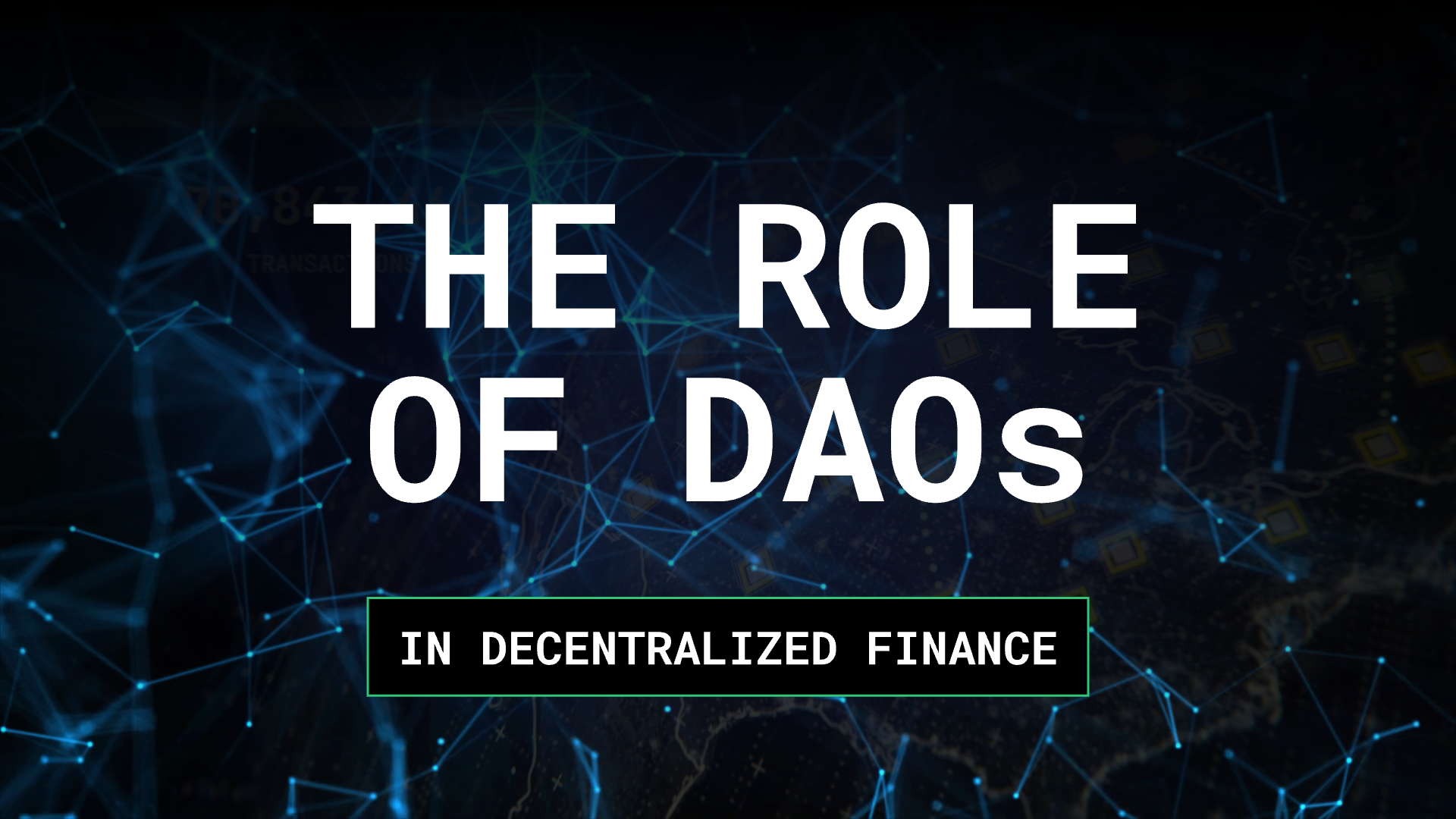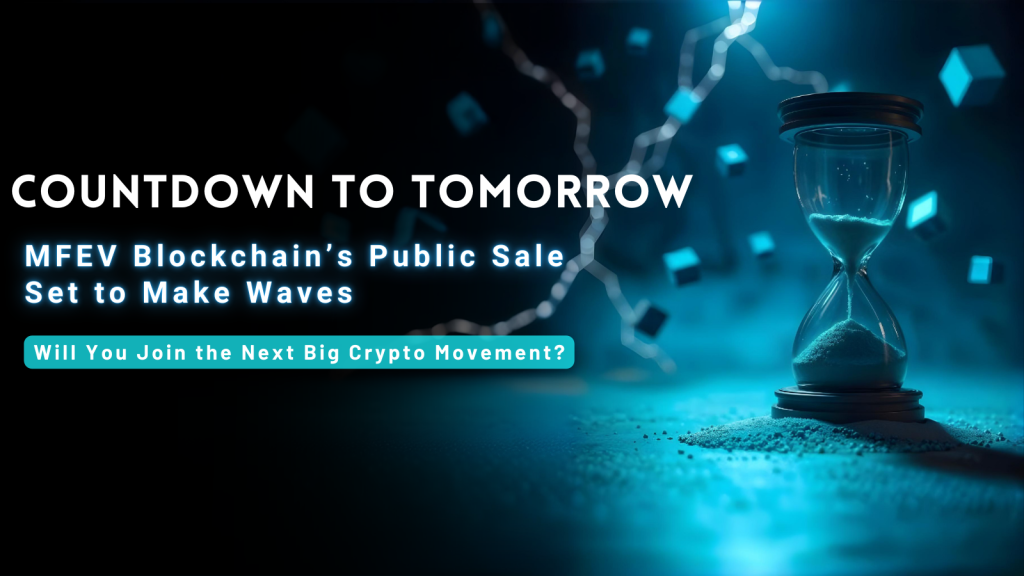The Role of DAOs in DeFi
Dubai, UAE, 13th April 2024, Thanks to the growing number of crypto users seeking greater privacy and convenience in their financial transactions, the DeFi industry is undergoing unprecedented growth. Arguably, one of the most influential developments in this space is the emergence of Decentralized Autonomous Organizations (DAOs), which are powerful tools that promote community ownership and decision-making.

DAO Advantages
DAOs, fueled by blockchain technology, give crypto users a transparent and community-driven approach to fundamental project decisions. This innovative governance model functions through smart contracts that encode protocols for proposing, voting, and executing ideas without intermediaries. DAOs ensure that no single entity controls them, delivering a high degree of decentralization that empowers the crypto community to partake in the development of DeFi.
All DAO actions and decisions are recorded on a public blockchain, ensuring that decision-making and voting are fully observable and transparent. This promotes trust and assurance among members and works as a powerful deterrent to any fraudulent or dishonest activity, ensuring a safe environment for all participants.
In addition, DAOs are open to everyone who wishes to participate, making them more accessible than traditional companies that commonly have stringent rules for acquiring membership. Moreover, DAOs are more inclusive, allowing users from different backgrounds to have equal chances to participate in the project’s governance. The integrity of potential DAO members is reviewed based on their activity in the project, such as by checking the number of governance tokens they own. These tokens are not available for purchase but are only received as a reward for participating in the project’s development, thereby being a good indication of a candidate’s true intentions and sentiment towards the project.
Lastly, DAOs do not only prioritize transparency and inclusivity but also bring notable efficiency and cost-saving benefits. By automating many tasks usually done by humans in classic companies, DAOs enable smoother-running DeFi products and services in the future.
The role in DeFi
The DeFi industry’s primary goal is to establish a financial system that is more open, accessible, and free from centralized control. First, DeFi facilitates user empowerment by giving them complete authority over their financial decisions and funds. The DeFi applications and services enable users to manage their crypto assets independently without needing the services of third-party custodians and other intermediaries. Consequently, users gain greater autonomy and new resources to achieve their financial goals.
Secondly, DeFi aspires to utilize blockchain and associated technologies to develop more effective and advantageous tools and services. By doing so, DeFi initiatives can continue eliminating inefficiencies and expenses that commonly exist in conventional financial ecosystems.
DAOs represent a natural progression of the DeFi industry’s maturation. They are designed to ensure that the DeFi principles of decentralization and accessibility are met. Through DAOs, users can show their support for teams, projects, and ideas and be confident that their opinions matter. This shift marks a significant change in the power dynamics within the crypto space.
Furthermore, DAOs can further enhance DeFi by promoting reliability and durability in financial systems. Unlike centralized institutions vulnerable to regulatory oversight and single points of failure, DAOs decrease the probability of censorship, corruption, and external manipulation by disseminating decision-making authority among a varied network of members.
Therefore, it is not unexpected that DAOs have become the preferred governing model for many DeFi projects that build and maintain various decentralized protocols, exchanges, lending platforms, and more. As a result, DAOs have contributed to unlocking new opportunities for economic empowerment and wealth creation in the DeFi world.
DAO Difficulties
DAOs can transform decentralized finance. Still, they also present substantial challenges, including security vulnerabilities and possible voter apathy that can compromise the efficiency of any DAO without a large following. In order to minimize such risks, it is essential to establish strong governance mechanisms, encourage community engagement, and carry out continuous auditing and testing.
Moreover, regulators are still struggling to determine the legal status and regulatory requirements of DAOs, which makes the regulatory environment uncertain. Even though this aspect is not currently important for most DeFi users, it could become relevant in the future if the regulations that are put in place prove too restrictive.
Conclusion
DAOs offer a groundbreaking way to govern and engage with projects, signifying a major change in thinking. DAOs and their members are expected to play an increasingly significant role in shaping the future of financial technologies. By endorsing decentralized governance models and encouraging cooperation among stakeholders, the crypto community can create new prospects for innovation, democratization, and economic empowerment across the globe. Kinetex also celebrates the crypto community and empowers its users via establishing Kinetex DAO, thus emphasizing users’ importance for the sustainable growth and mass adoption of Kinetex and crypto in general.
Kinetex Network: Website | Kinetex dApp | Blog
Disclaimer: The views, suggestions, and opinions expressed here are the sole responsibility of the experts. No Florida Recorder journalist was involved in the writing and production of this article.

